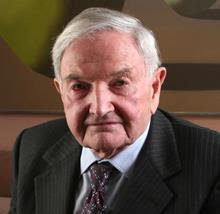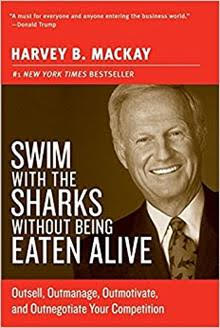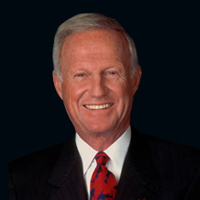If I
had to name the single characteristic shared by all the truly
successful people I've met over a lifetime, I'd say it is the ability to
create and nurture a network of contacts.
Although
I never met David Rockefeller, he certainly would have fit in this
category. When he passed away in March 2017 at the age of 101,
"Bloomberg News" revealed that he had an "electronic Rolodex" of 150,000
people. "The Wall Street Journal" recently reported it was 200,000. He
was a master networker during his 24 years as the head of Chase
Manhattan Bank and 60 years of being involved with the Council on
Foreign Relations.
In
my corporate speeches, I often ask the question: What is one of the most
important words in the English language? I add that if all of us
understood this word just a little bit better, we'd be way more
successful than we already are. That word is "Rolodex," which of course
is now referred to as a contact management system.
My
father, Jack Mackay, who for 35 years headed the Associated Press in St.
Paul, Minnesota, shared his secret with me when I was 18. He said,
"Harvey, every single person you meet the rest of your life should go in
your Rolodex file. Write a little bit about that person on the bottom
or the back of the card. And now, here's the key - find a creative way
to keep in touch."
That's
what I've been doing ever since. I now have nearly 20,000 names in my
electronic Rolodex file, a far cry from David Rockefeller, but still
crucial to my career. The contacts I've made over all these years are
why I've been writing this nationally syndicated column for the last 24
years.
My
Rolodex was instrumental in launching my publishing career. Let me
explain. In 1988, there were roughly two million "wannabes," people who
wrote manuscripts. Roughly 200,000 books got published. Of those only a
small percentage were business books. If you're a first-time, unknown
author like me and you write a business book, you want to get it
published. All the major publishers will print 10,000 hardcover books.
That's it. Tom Peters, "In Search of Excellence," 10,000 copies; Ken
Blanchard, "The One-Minute Manager," 7,500 books.
This
is why it was so tough to get started. There were 5,000 bookstores back
in the '80s and '90s, which means an average of only two books per
store if they print 10,000 copies.









No comments:
Post a Comment